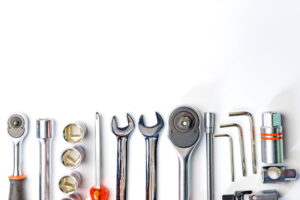How’s your heater doing? Has it been having some problems? Were you hoping that you could squeak by for the rest of the winter without getting it repaired? Here are some signs of heater problems that you shouldn’t ignore as well as the most important thing you can do to decrease the need for repairs.
Smells
It’s normal for there to be a burning-dust smell when you first start your heater up in the fall, but it should dissipate quickly. However, a burning smell at other times of the year is a big concern. And if you ever smell an eggy, sulfur smell from a gas heater, it’s a serious emergency. Evacuate your home and call for repairs because that’s a sign of a gas leak.
Sounds
Your heater should only hum and whoosh. It should never clatter, boom, screech, or make any other strange or sudden sounds. How important is it to get repairs when you hear an odd noise? Well, say for example that your heater is groaning. That probably indicates that the motor bearings have worn down. Getting prompt heating system repair in Lockport, IL means you should only need the bearings replaced. Delaying repairs could mean replacing the whole motor. And that’s a common theme: allowing a heater to operate while it’s struggling often leads to a more extensive (and more expensive) repair down the line.
Uneven Heat
If the temperature is pleasant in some rooms but never gets warm enough in others, there are a variety of possible causes. One likely possibility is that there is a problem with the ductwork leading to the chilly parts of your home. A tear or hole, or piece of ductwork that has become disconnected, could leave the heat pouring out into unoccupied areas like your attic while the places you want cozy stay cold.
Not only is this not ideal for your comfort, but it also risks sucking in contamination like insulation particles that are not great to have inside your heater. It also wastes your money while you pay for heat you’re not receiving.
Short Cycling
This is when your heater starts up and shuts down much too frequently. It can be caused by a few different things, such as an overheating component triggering the limit sensor and causing the heater to shut down as a safety mechanism. More importantly, the short cycling itself causes other problems. It puts a lot of strain on the system. Because a startup uses more energy than any other part of the cycle, constant startups mean you’ll see a significant increase in your next heating bill.
Avoiding Repairs
You should definitely have maintenance done once a year to decrease the likelihood of anything going wrong with your heater throughout the winter. Still, there’s something else you should be doing: changing your air filter. This prevents dust accumulation (which can lead to overheating) and allows for proper airflow (so you’ll have a nice blast of heat and not just a warm trickle). It reduces wear and tear and helps your heater to live a long life before it needs to be replaced. Make sure to change it every month during constant use and every 3 months during sporadic use.
Call J&A today, Sleep-tight tonight!

